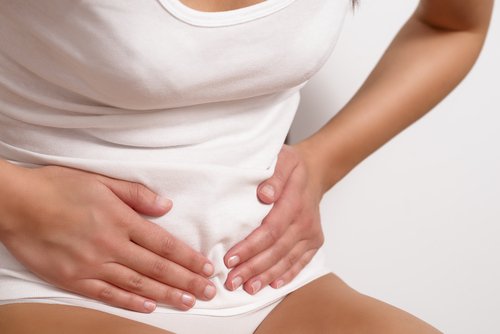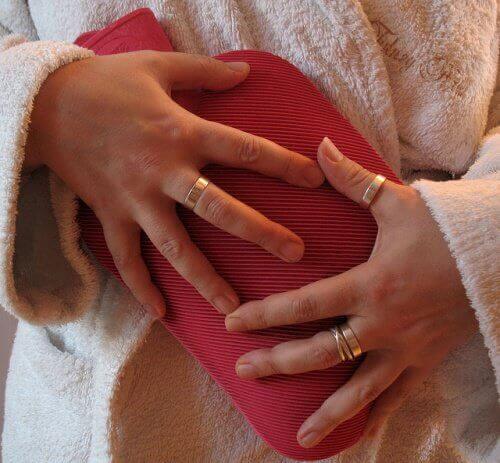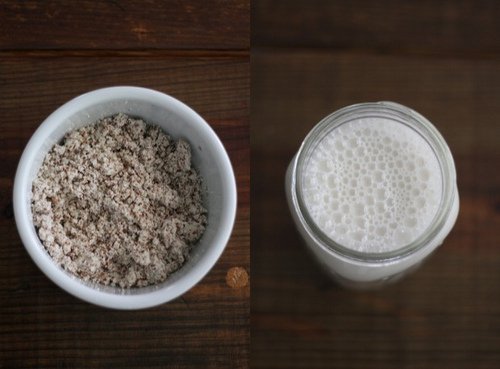Why You Feel Pain During Menstruation

Many women feel pain during menstruation, but gynecologists usually offer no solution other than taking anti-inflammatory or birth control pills. We will explain what can cause pain or cramps and how to treat them with food and some natural supplements.
You might like: Late Periods: Should I Worry?
Why You Feel Pain During Menstruation
Excess of Estrogen
The main reason why women suffer from menstrual pain is an excess of estrogen in the blood. Estrogen is an essential hormone for health because it influences your intellectual capacity, bone development, circulation, etc.
However, it can be a problem if you have too much estrogen because, in that case, it will be the cause of various imbalances such as pain during menstruation.

Why Are You Producing Too Much Estrogen?
Below are the possible causes of an increase in estrogen levels in both men and women:
- Harmful food or food you don’t digest properly because of food intolerances
- Stress
- Tobacco and alcohol
- Environmental pollution
- Food additives and toxic substances in the products you use every day (soaps, shampoos, makeup, etc.)
- Birth control pills

Additional Risks of Excess Estrogen
Menstrual pain is not the only consequence of high levels of estrogen. It can also lead to other health problems, which will also help you find out if this is your problem:
- Irregular periods
- Headaches
- Joint and muscle pain
- Indigestion
- Hair loss
- Dry skin
- Fatigue
You might like: Blood Clots During Your Period: 5 Facts
How to Reduce Pain During Menstruation
Foods that May Alter Your Hormone Levels
In order to treat this hormonal imbalance, you should avoid or limit the following foods as much as possible in your diet:
- Sugar and sugary drinks: Sugar does not give you any benefits. Additionally, white sugar is very harmful because it takes away minerals and increases your body’s acidity. You should completely eliminate it and substitute it with stevia, bee honey, or fruit and grain molasses.
- Wheat: The wheat we eat today is very adulterated and many people do not digest or assimilate it well, without even knowing it. Try to substitute it with oats, buckwheat, or rye, and always choose whole grains.
- Cow’s milk: People with high levels of estrogen tend to suffer from some kind of lactose intolerance, but they don’t know it. We recommend choosing milk alternatives such as oat, almond, or rice milk. Soy milk is not healthy, because in addition to being transgenic, most of the time it is also rich in estrogen.
- Too much red meat. You should eat it once every fifteen days, at the most, with a salad or vegetable.
- Stimulants like coffee, alcohol, and cola drinks. Highly not recommended.

Beneficial Supplements for Pain During Menstruation
In addition to avoiding those harmful foods, which will make you feel much better, in general, we also recommend taking these three supplements every day to help you eliminate excess estrogen and regulate your hormonal system.
1. Linseed oil
Linseed oil is oil that is first cold pressed from linseed is rich in essential fatty acids and will help regulate your hormone levels when you have too much estrogen. It is also a good remedy if you have dry skin.
Take a tablespoon a day (15 grams), alone or mixed with food. If you want to avoid the flavor, you can take it as a capsule.
2. Chasteberry (Vitex agnus-castus)
This medicinal plant allows you to treat all kind of menstrual irregularities and can even cause ovulation in women that don’t have a period for unknown reasons. Take 200 mg of the extract a day for at least 3 to 4 months, because its effectiveness is progressive.
3. Maca
This Andean root is known as a superfood and is a hormone regulator for many reasons because it acts on the pituitary gland and hypothalamus. It provides a lot of energy, which will work great if you are going through a stressful period. Take between 3 and 6 grams a day.
You can take it in the form of a capsule or mix it with a little bit of water, juice, or yogurt. In some cases, it can cause a little bit of nervousness. If this is the case, you should reduce the dose and only take the two remedies above.
Images courtesy of Tonino Donato, Esther Simpson, and Food Loves Writing.
All cited sources were thoroughly reviewed by our team to ensure their quality, reliability, currency, and validity. The bibliography of this article was considered reliable and of academic or scientific accuracy.
-
Basalvilvazo Rodriguez, A., Flores Barboza, A., Soto Castañeda, G., & Valdes Vargas, A. (2009). Diagnostico y tratamiento de dismenorrea en el primer, segundo y tercer nivel de atencion. Guia de Practica Clinica.
-
Tonini, G. (2002). [Dysmenorrhea, endometriosis and premenstrual syndrome]. Dismenorrea, Endometriosi e Sindrome Premestruale. https://doi.org/10.1149/1.1348260
-
Shaw, S., Wyatt, K., Campbell, J., Ernst, E., & Thompson-Coon, J. (2018). Vitex agnus castus for premenstrual syndrome. Cochrane Database of Systematic Reviews. https://doi.org/10.1002/14651858.CD004632.pub2
This text is provided for informational purposes only and does not replace consultation with a professional. If in doubt, consult your specialist.








